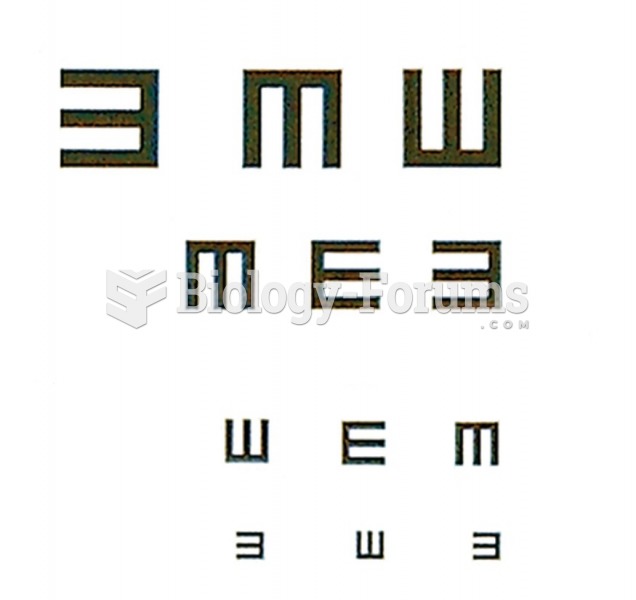|
|
|
Congestive heart failure is a serious disorder that carries a reduced life expectancy. Heart failure is usually a chronic illness, and it may worsen with infection or other physical stressors.
It is believed that humans initially contracted crabs from gorillas about 3 million years ago from either sleeping in gorilla nests or eating the apes.
A headache when you wake up in the morning is indicative of sinusitis. Other symptoms of sinusitis can include fever, weakness, tiredness, a cough that may be more severe at night, and a runny nose or nasal congestion.
Fungal nail infections account for up to 30% of all skin infections. They affect 5% of the general population—mostly people over the age of 70.
Essential fatty acids have been shown to be effective against ulcers, asthma, dental cavities, and skin disorders such as acne.
 A rocky shore at low tide, showing the great abundance that can be attained by populations of intert
A rocky shore at low tide, showing the great abundance that can be attained by populations of intert
 Symbolic language may have helped reinforce exclusive sexual relationships within social groups in l
Symbolic language may have helped reinforce exclusive sexual relationships within social groups in l





